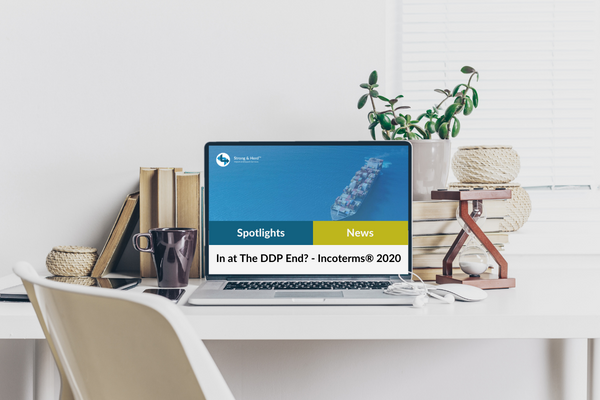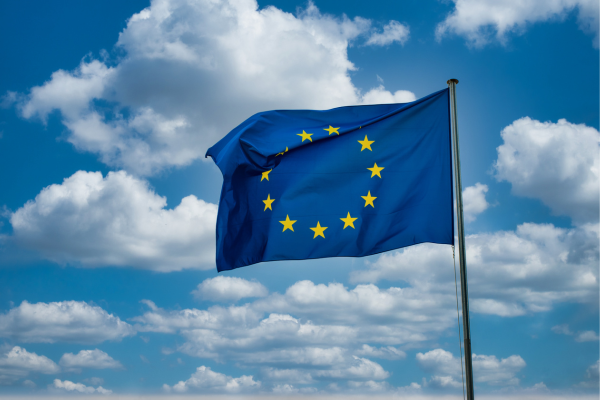BY:
SHARE:

Of the eleven Incoterms® Rules in the 2020 set, Delivered Duty Paid (DDP) is the one that places the most responsibility on the sellers. Uniquely, a seller, or exporter as we will call them, supplying goods on a DDP contract, is responsible for the customs formalities and payments of import duties and taxes in the buyer's country. Moreover, the exporter also carries the risk if the goods are lost or damaged at any time before they reach their stated final destination.
That's a serious responsibility for any exporter, and one that may be beyond the capabilities of many. Rules and procedures are different for every country. Still, in many cases, the exporter would have to have a registered business approved to import goods, which may require additional registrations in the country of destination. It can also be challenging to control and predict the costs involved and, therefore, to agree on an appropriate price. In some countries, it's complicated for anyone who isn't regularly dealing with customs procedures in that country, to predict precisely what import taxes, duties and other charges might be incurred.
So DDP is not something to be entered into lightly, and in many exporting businesses, the three letters will rightly be met with reluctance and scepticism.
However, every Incoterm® Rule is there for a reason, and there are several situations where the term can be the most appropriate, or even the only workable solution. When I was exporting medical products, most of my sales were to established distributors who knew the import procedures in their countries and were perfectly comfortable with handling arrangements and settling local taxes and costs. Still, occasionally, I would have to send goods to medical practitioners, such as a private practice. They were a commercial operation but had no knowledge of customs procedures, or desire to learn them. The terms of business would be delivery to their premises, all costs, duties, and import taxes paid. Before Brexit, that was relatively easy for customers in an EU country, as import duty and taxes did not apply, but it was a different story elsewhere.
If we look at it from the importer's point of view, a major potential problem with receiving goods on a DDP basis is that the supplier may be paying VAT at import into the buyer's country and unable to reclaim it. So, the cost would be calculated as part of the importer's price but would not be a cost that could be recovered from the import country’s tax authorities. This, however, wasn't a problem for many medical practices in other countries, as often they aren't registered for VAT. Some countries exclude medical practitioners from the requirement to register for VAT. Before Brexit, I'd be obliged to charge UK VAT on such a customer's invoice, as they couldn't give me a VAT number. After Brexit, the goods leave the UK without VAT being charged (I'd need to ensure I had proof of export that would satisfy HMRC) and import VAT would be charged at the national rate in the customer's country.
This situation, therefore, removes at least one objection to using DDP; the customer wouldn't be able to reclaim the VAT, due to the nature of their business. I still had to be able to complete customs clearance in the customer's country, however, and this usually meant either having legal status in that country or having an arrangement with someone who did. Fast parcel operators typically operate under special arrangements, meaning they can take responsibility for import clearance and settle import duties and taxes. They'll usually charge an administration fee for doing so, so it's essential to understand the costs upfront. As our company was a regular shipper of goods, the chances were that we could negotiate a better price for the whole delivery than the customer could, and that's another solid commercial reason for the exporter to take most of the responsibility. It will often work out cheaper that way.
Alternatives to using fast parcel operators include local fulfilment centres and, in some countries, a legal agreement, such as a fiscal attorney with a local customs or shipping agent.
It's ideal for any exporting company to ensure that staff understand Incoterms well and can discuss the choice of Incoterm® Rule confidently with customers and shippers. This should include teams working in sales, procurement, and finance, as well as in export, import and shipping roles. Strong & Herd LLP offer ICC-registered training in Incoterms® Rules 2020, delivered by qualified Incoterms® trainers.
If you feel your business would benefit from additional Incoterms training or have any lingering questions, we are here to assist you. Don't hesitate to reach out to us at enquiries@strongandherd.co.uk. Our dedicated team is ready to provide the support and guidance you need.
OneCall™ Email assistance as and when required; A one-call solution for all your import, export and customs enquiries. Export help. Import help. Customs help.
Stay informed about customs and international trade matters by subscribing to our OneCall™ service. This comprehensive offering includes a dedicated email helpline for support, timely practical updates direct to your inbox (Did You Know?), monthly UK Customs & Trade Briefings and access to an interactive members' area with an exclusive community for our subscribers.
International Trade Updates & Spotlight Newsletter
Subscribe to our free information emails covering international trade topics...









